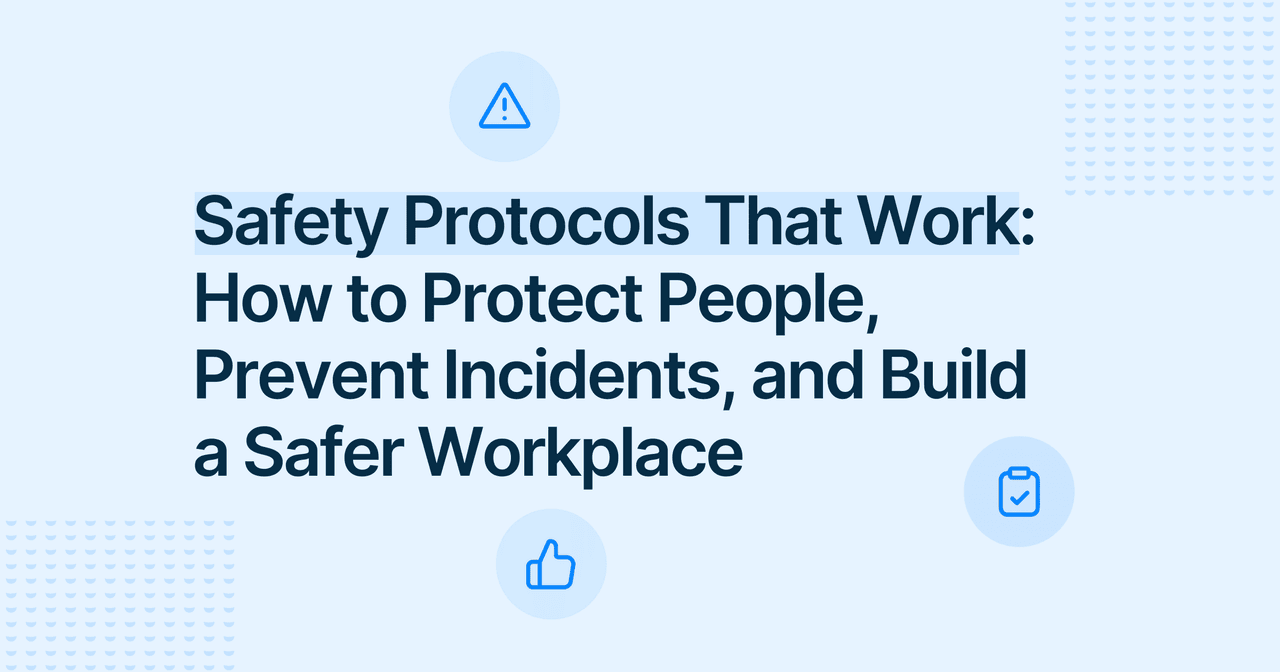



Centralize Reports & Cases
Replace outdated processes with modern, compliant workflows.
Whistleblowing

Alaa El-Shaarawi
Copywriter and Content Manager
Published
2025-03-12
Reading time
5 min


Table of contents
Subscribe to our newsletter
Speaking up at work isn’t about being loud, confrontational, or fearless. It’s about feeling safe.
In every organization, people see things that don’t sit right. A manager crossing a line. A process that quietly puts safety at risk. A decision that looks fine on paper but harms customers or colleagues in real life. Employees notice these moments long before leadership does.
What matters is what happens next. Do people feel safe enough to raise their hand? Or do they stay quiet, hoping someone else will deal with it? That choice, between voice and silence, is where culture lives.
A strong speak-up culture isn’t just a compliance requirement or a leadership buzzword. It’s a signal to employees that their experiences matter, their concerns won’t be ignored, and speaking up won’t cost them their job, reputation, or relationships. Across borders, time zones, and cultural norms, that signal makes all the difference.
This article explores why speaking up matters, why it’s often hard, and how organizations can build trust-driven speak-up cultures that work globally, not just on paper.

Organizations work better when employees feel safe to speak openly. Issues surface earlier, while they’re still manageable. Ethical concerns are addressed before they become headlines. Teams collaborate more honestly. And leaders make decisions based on reality.
Organizations with strong speak-up cultures consistently see:
The opposite is also true. Problems don’t go away when employees stay silent. They pile up. And by the time leadership notices, the cost, human and financial, is much higher.
When people stay quiet at work, it’s rarely because they don’t care. It’s because speaking up feels risky. And across cultures, the same questions come up:
Will this come back to me?
Will anything actually change?
Is it safer to stay quiet?
The answers depend heavily on cultural norms, power dynamics, and past experiences.
Some cultures encourage open disagreement; others discourage it or even treat it as taboo.
In lower power-distance cultures, like the U.S., the Netherlands, or Scandinavia, employees are generally more comfortable questioning decisions and giving direct feedback. In higher power-distance cultures, including parts of Asia, Eastern Europe, and the Middle East, hierarchy and respect for authority carry more weight.
In these environments, speaking up can feel less like honesty and more like stepping over a line. Neither approach is right or wrong, but ignoring these differences is a quick way for any speak-up initiative to fail.
Understanding these cultural nuances is key to building a truly global speak-up culture.

Fear is the most universal barrier of all.
Employees worry about subtle retaliation: missed promotions, strained relationships, being labeled as “difficult,” or quietly pushed out. Even when anti-retaliation policies exist, people pay attention to what actually happens, not what’s written down.
If past concerns were ignored, mishandled, or punished, silence becomes self-protection.
A global speak-up culture isn’t created by publishing a policy and hoping for the best. It’s built through consistent signals that tell employees they’re safe everywhere the organization operates.
Employees watch how leaders react when concerns are raised.
Do they listen without defensiveness? Do they thank people for speaking up, or shut the conversation down? Do they follow through?
When leaders respond with openness and accountability, they send a clear message: speaking up is valued here.
Psychological safety means employees don’t fear embarrassment, punishment, or being ignored when they raise concerns. It grows when:
Without psychological safety, even the most robust reporting systems stay quiet.
Not everyone feels safe speaking up directly, and that’s okay. Effective organizations offer multiple paths, including:
When reporting feels simple, secure, and taken seriously, trust grows.
What works in one country may not work in another. Organizations that succeed globally invest in:
The goal isn’t uniform behavior, but shared safety.
Speaking up at work takes trust, and that’s even trickier across different cultures. Modern whistleblowing platforms like FaceUp help make it easier for employees everywhere to be heard, without fear.
By focusing on trends rather than individuals, FaceUp helps organizations act faster and build a culture where employees feel truly safe to speak up, no matter where they are.

A speak-up culture doesn’t appear overnight. It’s built through daily choices, consistent leadership, and systems people can genuinely trust.
FaceUp helps organizations turn silence into insight. With secure, anonymous reporting and clear, transparent case management, we make it easier to build a culture where speaking up is safe, respected, and acted on.
Because speaking up isn’t about creating conflict. It’s about caring for people, protecting integrity, and shaping the future of work.
Give your team a voice. Book a demo and see how FaceUp makes it simple and safe.




Replace outdated processes with modern, compliant workflows.
Keep Reading

Alaa El-Shaarawi2026-02-029 min
Workplace Environment

Alaa El-Shaarawi2026-01-307 min
Workplace Environment

Alaa El-Shaarawi2026-01-277 min
Workplace Environment

Alaa El-Shaarawi2026-01-2210 min
Legal & Compliance